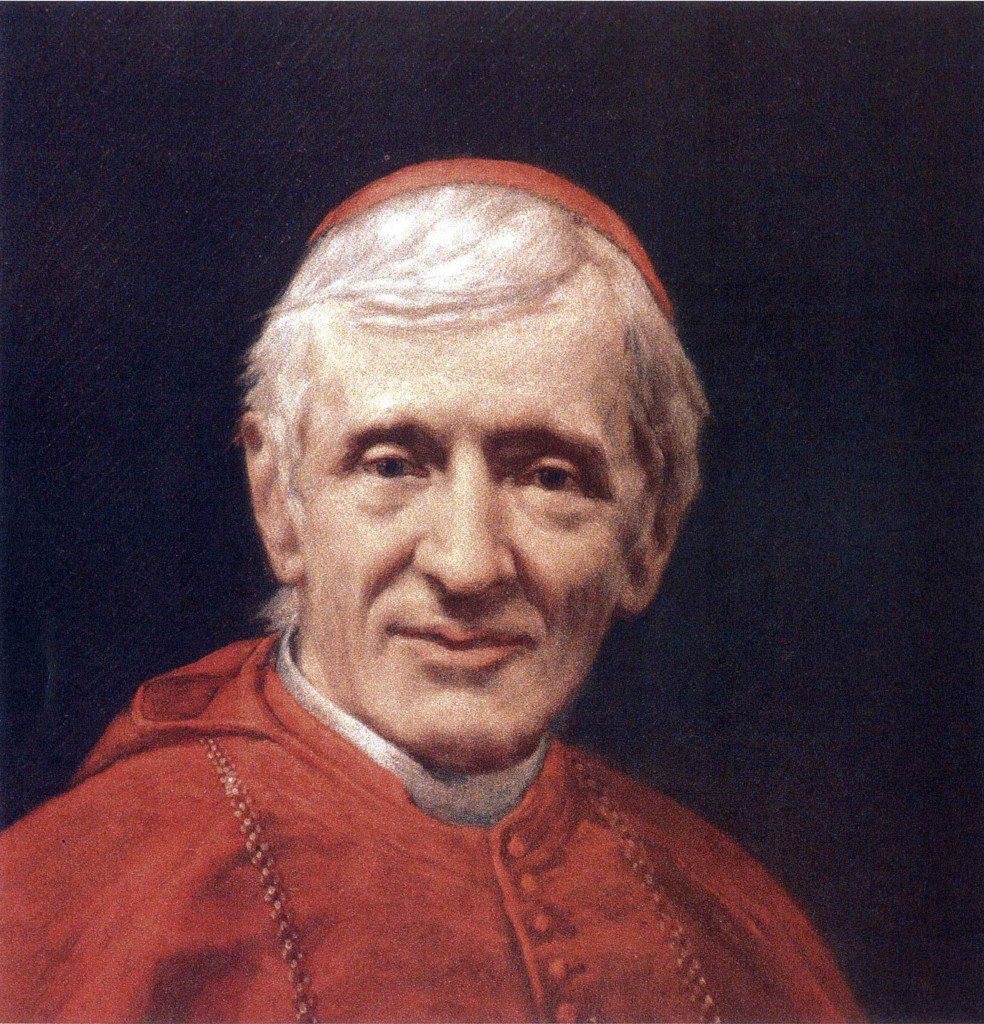The Mission of My Life
God has created me to do Him some definite service. He has committed some work to me which He has not committed to another. I have my mission. I may never know it in this life, but I shall be told it in the next. I am a link in a chain, a bond of connection between persons. He has not created me for naught. I shall do good; I shall do His work. I shall be an angel of peace, a preacher of truth in my own place, while not intending it if I do but keep His commandments. Therefore, I will trust Him, whatever I am, I can never be thrown away. If I am in sickness, my sickness may serve Him, in perplexity, my perplexity may serve Him. If I am in sorrow, my sorrow may serve Him. He does nothing in vain. He knows what He is about. He may take away my friends. He may throw me among strangers. He may make me feel desolate, make my spirits sink, hide my future from me. Still, He knows what He is about.
long,
Till the shades lengthen and the evening comes,
And the busy world is hushed, and the fever of life is over,
And our work is done.
Then in his mercy may he give us a safe lodging,
And holy rest, and peace at the last.
Amen.
A Saint for Birmingham
The reign of Queen Victoria was a time of great change, a time of human achievement, a time of inventions and discoveries. There are names which today stand out as great Victorians – Charles Dickens, Florence Nightingale, Isambard Kingdom Brunel, Charles Darwin, to name but a few. John Henry Newman is also often described as an ‘eminent Victorian’. His life spans almost the whole of the nineteenth century, and many believe he will soon be declared a saint.
In September 2010, Cardinal Newman continued along this path to canonisation when he was declared ‘Blessed’ during a huge celebration in Cofton Park on the outskirts of Birmingham, the culmination of Pope Benedict XVI’s momentous state visit to Britain. In October 2008, the Cardinal’s remains had been transferred from his simple grave in Rednal, southwest Birmingham, to the magnificent Oratory Church near Five Ways in Edgbaston, close to where he died, a sign that a saint for Birmingham may soon be declared.
It was in the Oratory Church that J.R.R. Tolkien, the author of ‘The Lord of the Rings,’ attended Mass for a number of years.
John Henry Newman Catholic College in Chelmsley Wood is the latest in a long line of schools in Britain to be honoured with his name. It is also in Birmingham that we find Newman University College, where many teachers at our school trained, which celebrates his close connection with our city.
At the news of his death in 1890, the London Times wrote, “Whether Rome declares him a saint or not, he will be canonised in the thoughts of pious people of many creeds in England.”
Early Life
John Henry England in 1801 and died a cardinal in the Catholic Church in 1890. His life from an early age was dedicated to the search for God – through study, service to others, and his work to renew the Church.
It was as a young priest in the Church of England, working in parishes in Oxford, that he discovered a sense of joy in serving others. And it was in Oxford, whilst vicar of the parish of St. Mary the Virgin, that he began a movement to renew the Church, which was to influence generations.
Newman’s Ministry Begins
On 13th June 1824, John Henry Newman was ordained a priest in the Church of England and served in the parish of St. Clement in Oxford, a poor area where the needs of the local community were great. It was the beginning of a lifelong journey along which he would encounter many personal hardships and difficulties.
By 1828, Newman had suffered a nervous collapse due to overwork, a difficult time which coincided with financial problems within his family and the death of his much-loved youngest sister, Mary.
It was during his recovery that Newman began to study in great detail the beginnings of the Christian church, a fascination that was to change his life forever.
The Oxford Movement
In 1825, John Henry Newman was created a tutor at Oriel College, Oxford, and appointed vicar of the church of St. Mary the Virgin. Here, he delivered his famous Sunday afternoon sermons which contributed enormously to a movement within the Church of England for reform and renewal. This campaign, soon becoming known as the ‘Oxford Movement,’ provoked great controversy – with Newman, John Keble, and Hurrell Froude, who also taught at Oriel College.
It was with Hurrell Froude that John Henry Newman visited Rome in 1832, which he described as ‘the most wonderful city on earth.’ But he remained firmly opposed to the Catholic Church. This viewpoint slowly began to change over the years as he was criticised and condemned more and more for his sermons and writings about the Church of England.
In 1841, Newman wrote an essay about Anglican beliefs which decided his path. The response he received led to his resignation as a vicar in the Church of England and the beginning of the next stage of his journey, which would involve personal loss and rejection by family and friends. On 9th October 1845, in Littlemore, near Oxford, John Henry Newman was received into the Catholic Church.
Newman’s Catholic Catholicism in 1845 led to his ordination as a Catholic priest and began his long association with the city of Birmingham, working among the Catholic poor.
He joined the Oratorian Order and founded the first English Oratory at Maryvale, near Oscott, now a teacher training college. The Oratory at Edgbaston near Five Ways was founded later in 1851.
John Henry Newman dedicated his life to education, at home in Birmingham and overseas, establishing what is now University College, Dublin, the largest university in Ireland.
He continued to write, expressing his ideas in both essays and poetry, which remain classics of Victorian literature. His writings continue to influence the Catholic Church today and have been a source of inspiration to Pope Benedict XVI. It was Pope Leo XIII who created John Henry Newman a cardinal of the Catholic Church in 1879, a great honour for an ordinary priest. It was a final recognition of a remarkable life, a life in pursuit of understanding, a life of service to others, a life shared among the people of Birmingham.
Quotes
“I know that reconciliation was a central theme in the life of Cardinal John Henry Newman, for whom you will be holding a Mass of Beatification on Sunday. A man who struggled with doubt and uncertainty, his contribution to the understanding of Christianity continues to influence many.”
The Queen, Holyrood House, Edinburgh, 16th September 2010
“England has a long tradition of martyr saints, whose courageous witness has sustained and inspired the Catholic community here for centuries. Yet it is right and fitting that we should recognise today the holiness of a confessor, a son of this nation who, while not called to shed his blood for the Lord, nevertheless bore eloquent witness to him in the course of a long life devoted to the priestly ministry, and especially to preaching, teaching, and writing.”
Pope Benedict XVI, Mass of Beatification, Cofton Park, Birmingham, 19th September 2010



